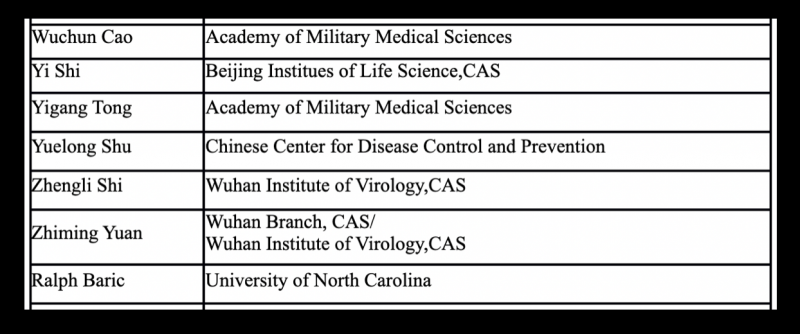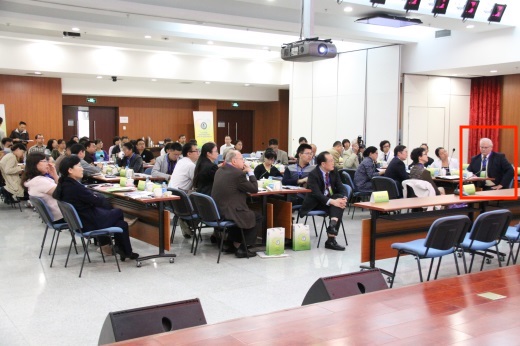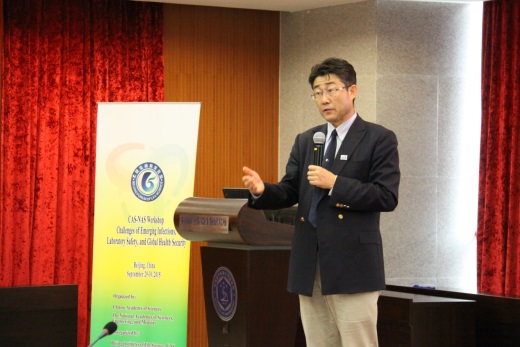Dr. Ralph Baric – described by the Wuhan Institute of Virology’s top bat coronavirus researcher Shi Zhengli as a “longtime collaborator” – attended a Beijing-based scientific conference discussing “gain-of-function” research alongside several researchers working for the Chinese military and the Wuhan Institute of Virology.
The unearthing of the 2015 conference follows a recent exchange where Senator Rand Paul probed Dr. Anthony Fauci about whether or not his agency, the National Institute of Allergy and Infectious Disease (NIAID), had funded the Wuhan Institute of Virology.
“For years, Dr. Ralph Baric, a virologist in the U.S., has been collaborating with Dr. Shi Zhengli of the Wuhan Virology Institute, sharing his discoveries about how to create super viruses. This gain-of-function research has been funded by the NIH.” Senator Paul outlined before Fauci asserted the claims were “entirely and completely incorrect.”
Adding to a growing list of evidence revealing otherwise, The National Pulse can reveal that Baric spoke at a Chinese Academy of Sciences event in 2015 discussing gain-of-function research – which can increases the transmissibility or lethality of a virus – alongside researchers working for China’s People’s Liberation Army (PLA).
In addition to featuring high-level Wuhan Institute of Virology researchers, two individuals from the Academy of Military Medical Sciences were also in attendance.

The two-day event – the 34th meeting of the Beijing Life Science Forum-Seminar on Emerging Infectious Diseases, Laboratory Safety and Global Health Safety Issues – started on September 29th, 2015. “Strengthening academic exchanges and discussions, taking advantage of international cooperation and joint research, and better responding to emerging outbreaks of infectious disease research have become major issues facing global health security,” notes a summary of the joint event with the U.S. National Academies of Sciences, Engineering, and Medicine (NAS).
The fifth session of the event was titled “Gain of Function Research” and featured a Chinese scientist lecturing on “Phosphorylation regulates the replication of influenza A virus” and American scientist David Franz delivering a lecture on the “NAS Gain-of-Function Meeting Report (The scientists’ view).”

The gain-of-function session immediately followed speeches by Baric on “MERS: Genetic Systems and Models” and Wuhan’s “bat woman” Shi Zhengli, who addressed the conference about “bat coronaviruses associated with human diseases.”

The sixth session of the event – High-Containment Labs…Safe, Secure, Productive, and Sustainable – contained remarks from the Wuhan Institute of Virology’s Deputy Director on “biosafety management of high-level biosafety laboratory for emerging disease control” and a lecture from Fauci-funded researcher Thomas Ksiazek entitled “high containment laboratories: putting the pieces of laboratory safety and global health security together.”
George Gao, who thanked Fauci for dismissing the “lab leak” theory in private emails revealed through a Freedom of Information Act (FOIA) request, hosted the event.

The conference sponsor, the Chinese Academy of Sciences (CAS), is controlled by the Chinese Communist Party.
“CAS is not run independently of government,” the organization asserts before divulging its close ties to the regime in a statement in the journal Nature:
The establishment and development of CAS have been entirely based on the wisdom and support of the central government. The role of the academy in leading China’s research has always been recognized by China’s leadership, which has respected science and technology from the start — for its own sake as well as for developing a sustainable economy. Contrary to your headline, CAS has never sought or achieved financial autonomy. Over the past 40 years, half of its income has come directly from central-government investment; the rest has been from competitive funding or technology transfer. CAS could not develop without the funding and support of the central government.

